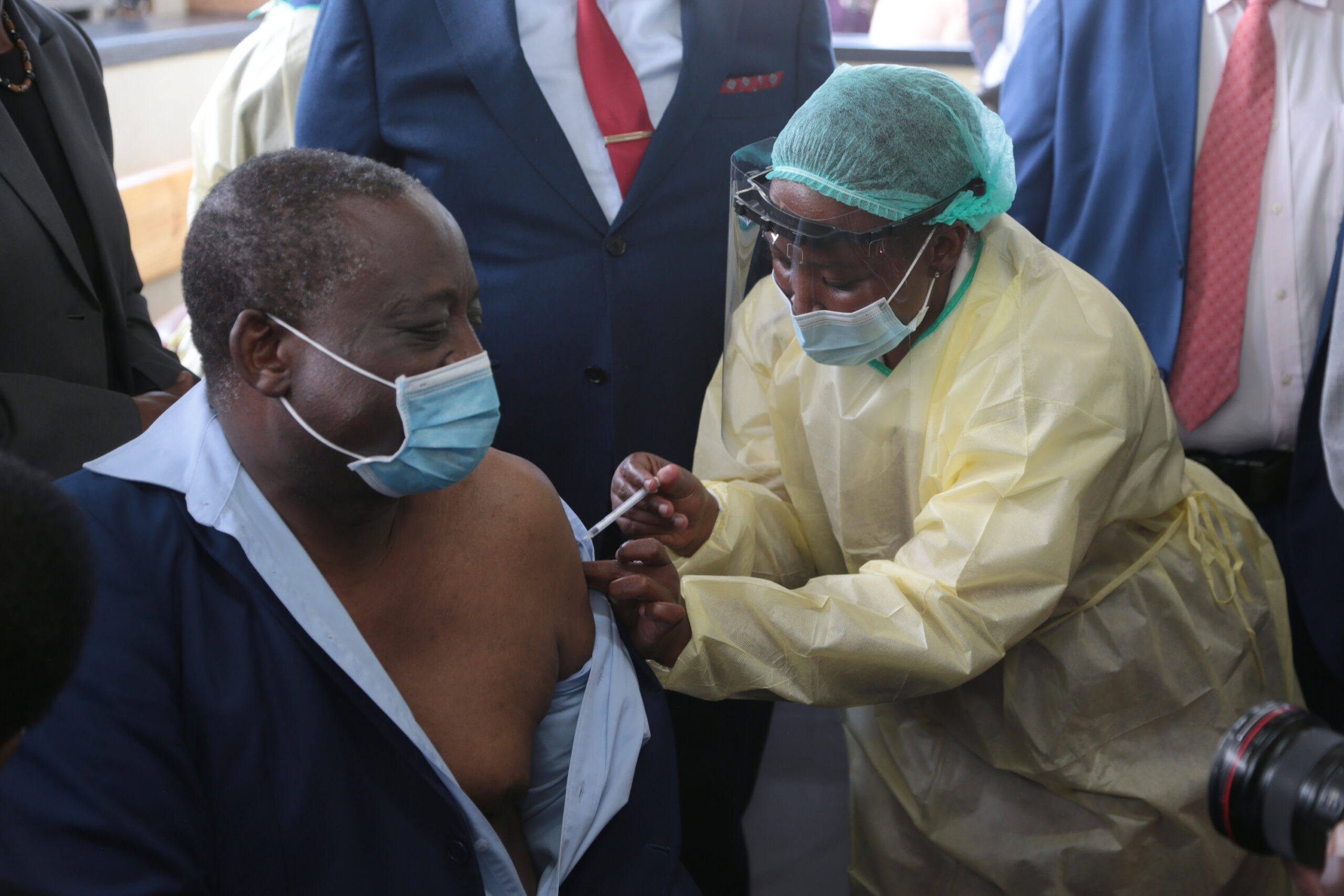THE Sinopharm and Sinovac vaccines being used in Zimbabwe’s Covid-19 vaccination programme are safe and have been used on millions of people in China and globally, the Asian country’s ambassador to Zimbabwe, Guo Shaochun, says.
OWEN GAGARE
Vaccination began at Wilkins Infectious Diseases Hospital in Harare on February 18 after Zimbabwe received an initial donation of 200 000 doses of the Sinopharm vaccine from China.
Vice-President Constantino Chiwenga, who doubles as the Health minister, received the first jab, helping allay safety fears at a time there was talk that the vaccine was not recommended for persons with underlying conditions, among other concerns.
However, Guo said there was a need for more information dissemination to burst “toxic myths”.
“As of 19 May, China had injected more than 435 million jabs, including the Sinopharm and Sinovac vaccines. As of 27 April, China has supplied over 100 million doses of vaccines globally as assistance to more than 80 countries and three international organisations and exports to more than 40 countries,” Guo said.
“In many places, Chinese vaccines have shown good results. For example, in Belgrade, where 34% of adults are inoculated, the daily increase in cases is dropping fast. Given time, there will be more data and feedback about these vaccines.
“Many state leaders have taken the vaccines, such as Turkish President (Tayyip) Erdogan and Vice-President (Fuat) Oktay, Seychelles President (Wavel) Ramkalawan, Jordanian Prime Minister Bisher Al Khasawneh, Indonesian President Joko Widodo and Bahrain Crown Prince and Prime Minister Salman (bin Hamad Al Khalifa).”
The Sinopharm jab is an inactivated vaccine developed by China National Biotec Group (CNBG). Interim results of the phase-three clinical trials released by its developer show that it has 79.34% efficacy against Covid-19.
The CoronaVac vaccine is also an inactivated vaccine, developed by Sinovac Biotech.
“Recent data in Indonesia, Brazil and other countries shows it is very effective in preventing infections, hospitalisations, admissions to intensive care units and deaths,” Guo said.
The World Health Organisation (WHO) on 7 May listed the Sinopharm vaccine for emergency use, giving the green light for the vaccine to be rolled out globally. This week, the WHO approved Sinovac for emergency use.
The WHO said it prevented symptomatic disease in 51% of those vaccinated and prevented severe symptoms and hospitalisation in 100% of samples.
Ambassador Guo said China was doing well to contain Covid-19, adding that the Chinese economy was on the rebound despite disruptions caused by the pandemic since early last year.
China was the first country to be hit hard by the pandemic after an outbreak in Wuhan.
“At home, China maintains good control over the pandemic. The new cases are mostly imported. For example, on 30 April, China reported 16 new cases, all from overseas. The Chinese economy has staged a strong comeback. It was the only major economy to register growth in 2020,” Guo said.
“In the first quarter of 2021, China’s GDP growth rate was 18.3%. Last week, millions of Chinese spent a joyful International Workers’ Day holiday. On 1 May, passenger trips on Chinese railways hit a new single-day high, with nearly 18.83 million trips recorded.”
Despite the progress, Guo said China continues to follow health guidelines including the wearing of masks and sanitising hands while vaccinating its population fast.
The Chinese diplomat said Zimbabwe had done well in its vaccination programme hence its ranking as the seventh-best African country in managing Covid-19 vaccination, according to the WHO vaccine tracker.
He commended the private sector for contributing in the Covid-19 fight.
“Such solidarity will go a long way towards sustaining the momentum of the programme,” Guo said.
“Going forward, it is important that awareness campaigns are continued across the country to educate the public about the science of vaccines and bust the various toxic myths holding people back. The commitment of the top leadership and government and the solidarity of the people are also critical.
“This is the most important factor in China’s success. As long as the government and people act in unison in implementing the WHO guidelines and get vaccinated when opportunities arise, we will be able to put the pandemic under control.”









